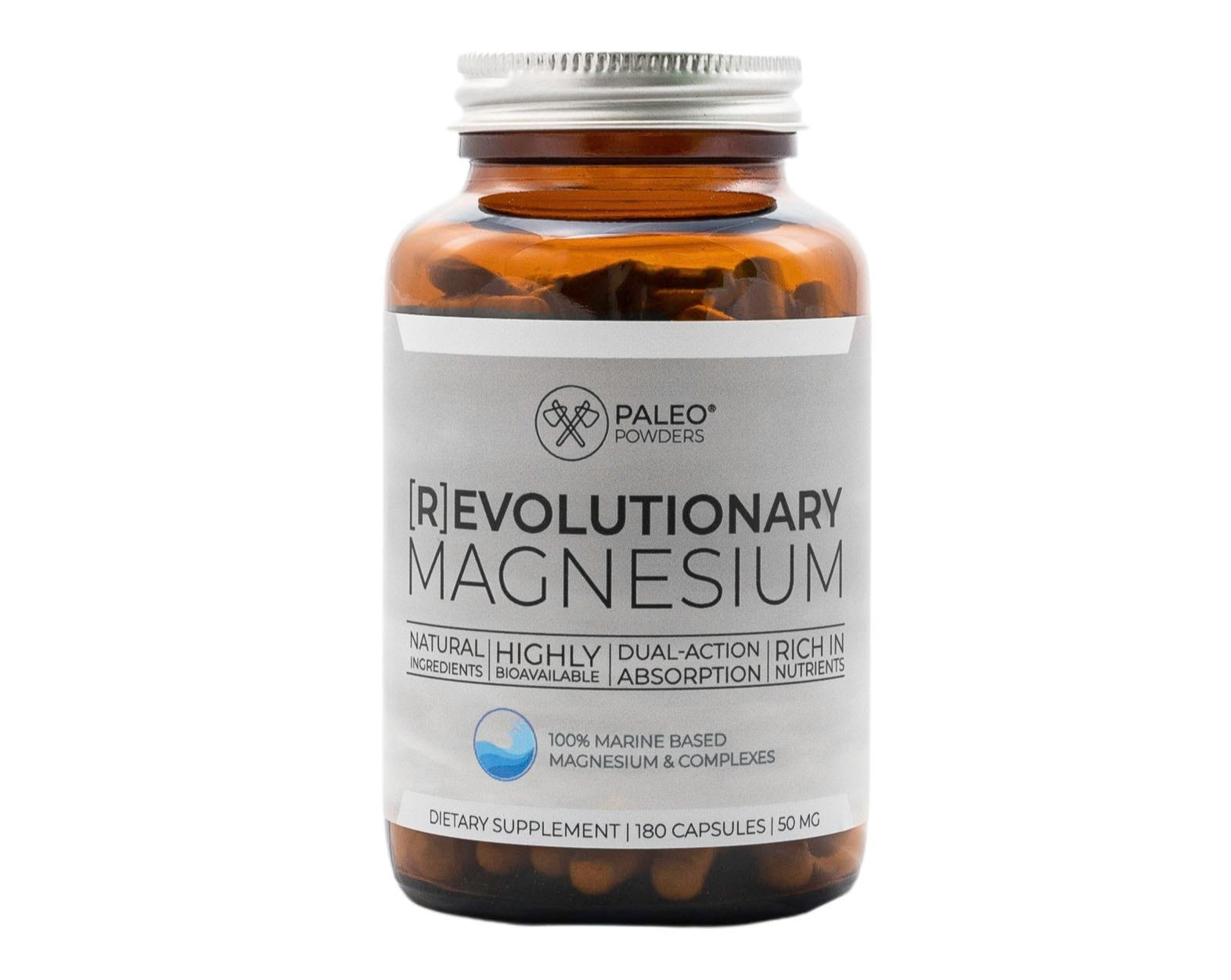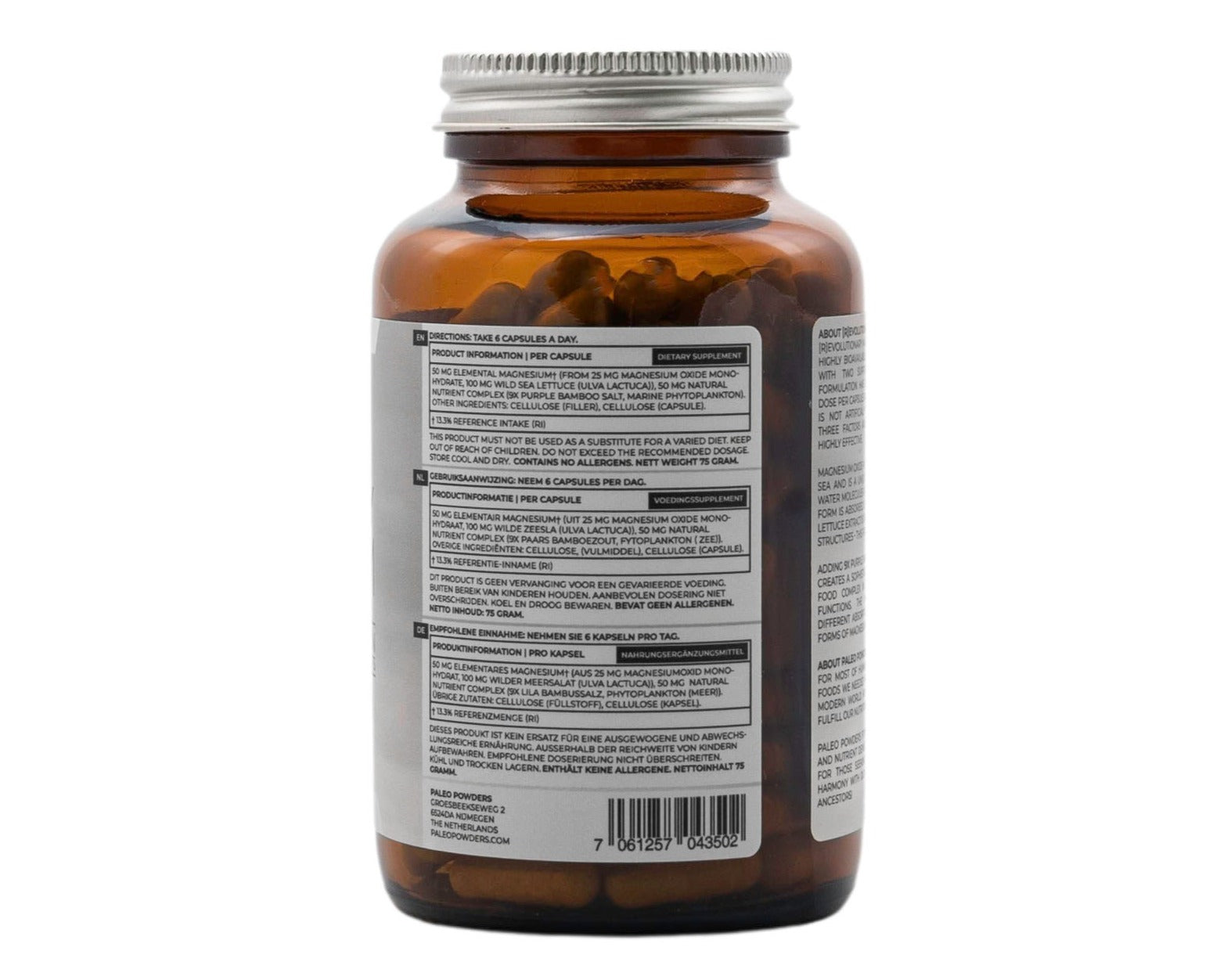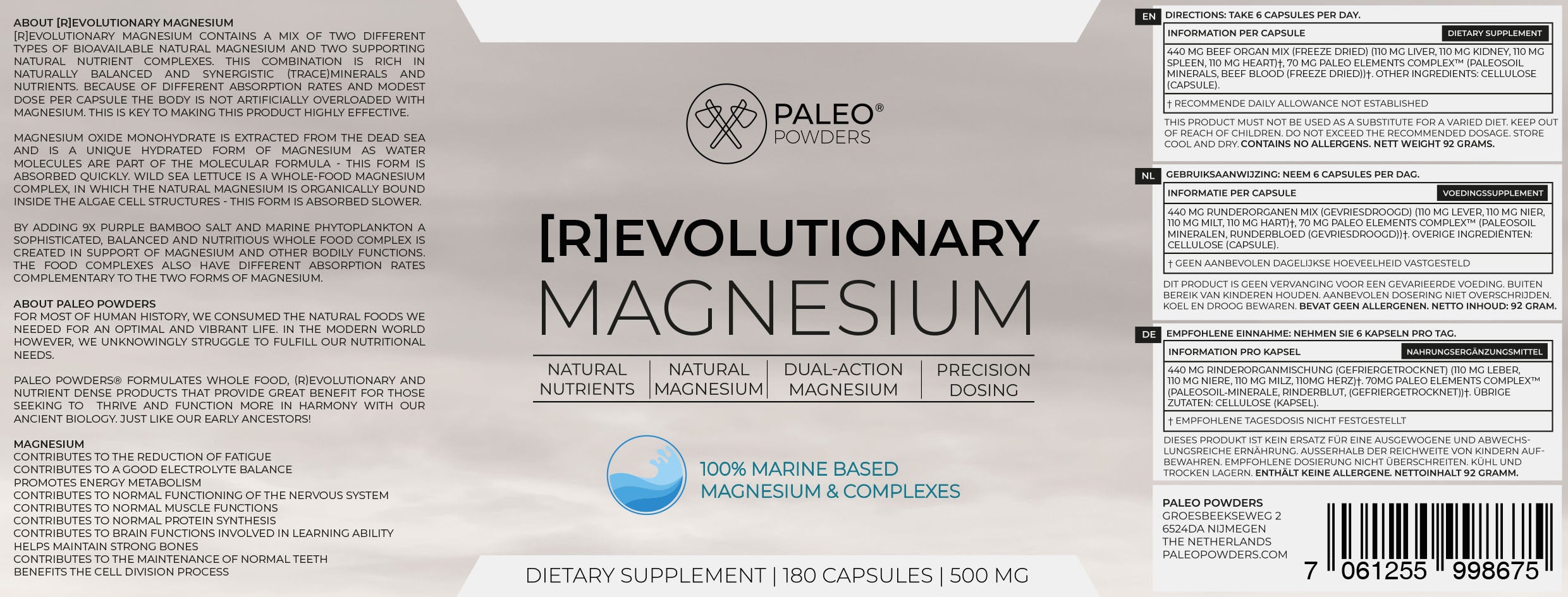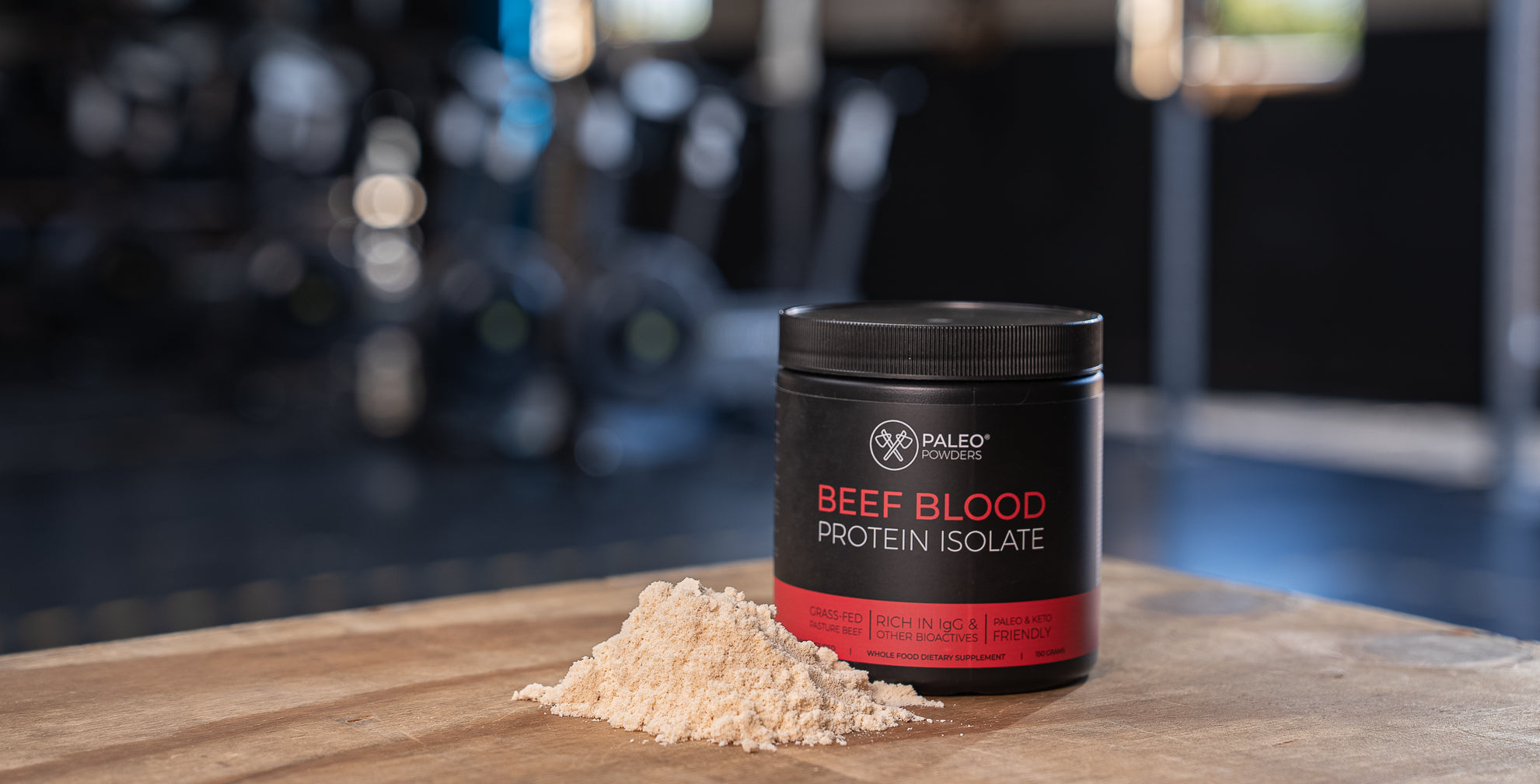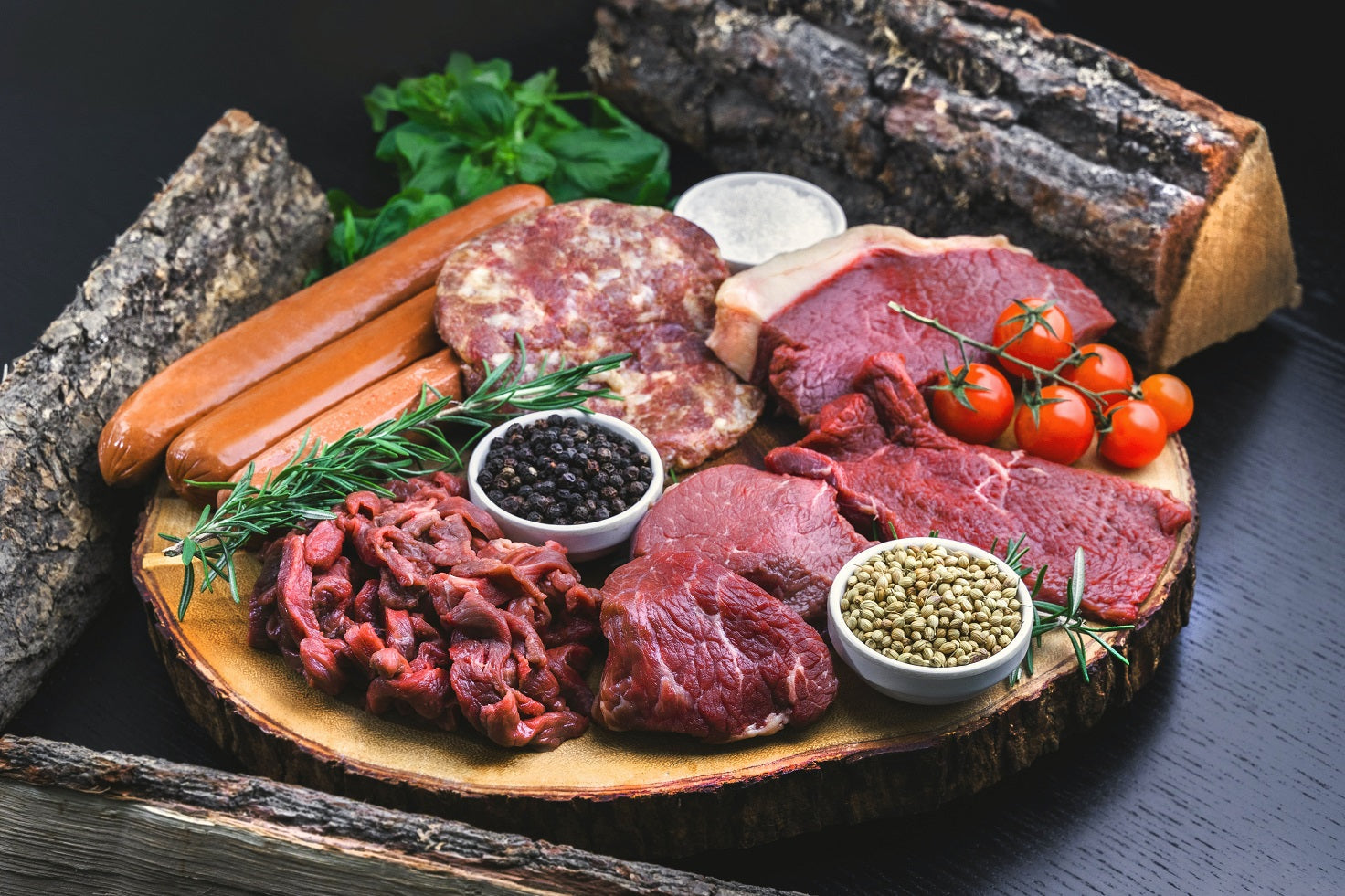
Hoeveel magnesium moet ik dagelijks nemen?
Hoeveel magnesium moet ik dagelijks nemen? Goede vraag maar dat is afhankelijk van veel factoren!
De standaard aanbeveling volgens het voedingscentrum is 350 mg per dag voor mannen en 300 mg per dag voor vrouwen. Dit is dus wat je in totaal zou moeten binnenkrijgen uit je voeding of voeding in combinatie met magnesium supplementen.
Dit is niet een individuele optimale dosering maar een gemiddelde minimale dosering om het lichaam te laten functioneren. Veel van de aanbevolen dagelijkse hoeveelheden van vitaminen en mineralen zijn jaren geleden vastgesteld. Zo zijn in Amerika de aanbevolen dagelijkse hoeveelheden voor magnesium, die niet veel afwijken van het voedingscentrum, in 1997 vastgesteld. Het gemiddelde lichaamsgewicht van mannen en vrouwen was toen veel lager. Dit is natuurlijk een belangrijke factor bij dergelijke aanbevelingen. Maar bijvoorbeeld stress is ook een belangrijke factor voor de magnesium status van een persoon. Het is geen controversiële conclusie dat sinds 1997 externe en interne stressoren van de moderne wereld alleen maar zijn toegenomen.
Een publicatie uit 2021 met de titel: Perspective: US Adult Magnesium Requirements Need Updating: Impacts of Rising Body Weights and Data-Derived Variance. Bevestigd het probleem van een verouderde aanbeveling.
Een berekening op basis van het gewicht lijkt dan ook een betere optie dan een standaard aanbeveling. Een goede berekening die je kunt gebruiken is 3-5 maal jouw lichaamsgewicht in milligrammen magnesium.
De berekening is wel gebaseerd op het gewicht in lbs (1 kg = 2.2 LBS).
Weeg je 80 kilo dan komt dit overeen met 176 lbs (80 x 2.2).
3 x 176 = 528 mg magnesium
4 x 176 = 704 mg magnesium
5 x 176 = 880 mg magnesium
Deze meer gepersonaliseerde hoeveelheden magnesium liggen duidelijk hoger dan de algemene aanbevelingen en zeer zeker het proberen waard als je opzoek bent naar een optimale magnesium inname.
Het lastige blijft dat veel factoren invloed hebben op de magnesium status. Heb je klachten die passen bij een magnesium tekort, overweeg dan een rode bloedcel magnesium analyse. Hiermee krijg je duidelijk inzicht over waar je staat en je kunt verdere vooruitgang blijven meten.
Hieronder enkele belangrijke factoren waar je rekening mee kunt houden voor een optimale magnesium status:
- Stress – De hoeveelheid stress die jij ervaart heeft invloed op de “Magnesium Burn Rate” ofwel BMR. Des te meer stress jij ervaart in intensiteit en hoeveel des te meer magnesium je lichaam verbruikt. Stressoren kunnen uiteenlopen van mentaal-emotioneel tot voedingsintoleranties tot blootstelling aan toxines etc..
- Hydratatie – Omdat magnesium een hydrofiel element is heeft het voldoende water nodig om te kunnen werken. Chronische uitdroging lijkt vaker voor te komen dan we denken en vooral ouderen lijken dit vaker te krijgen.
- Vitamine B6 – Om de opname van magnesium in de cellen te ondersteunen heb je voldoende vitamine B6 nodig. Laat het nu zijn dat lever rijk is aan verschillende B-vitaminen waaronder vitamine B6.
- Spreiden – Mineralen worden beter opgenomen als je ze spreidt over de dag. Voor magnesium geldt dit dus ook. Voeding spreid je automatisch maar bij een magnesium supplement kun je hier meer rekening mee houden. Als je bij iedere gespreide inname voldoende water te drinken dek je ook meteen # 2 goed af.
- Co-factoren – Zorg dat als je een magnesium supplement neemt ook andere mineralen en sporenelementen binnenkrijgt, samen en proportioneel aan de magnesium. Dit ondersteunt niet alleen de werking maar ook de opname en retentie van magnesium.
Waarom de magnesium van Paleo Powders
Paleo Powders Natuurlijke Magnesium is samengesteld uit 4 hoofdingrediënten, waaronder magnesiumoxide monohydraat, Ulva lactuca, paarse bamboezout en fytoplankton.
- Magnesiumoxide monohydraat is een natuurlijke magnesiumbron afkomstig van de oceaan. Het wordt gezien als een superieure vorm van magnesium vanwege zijn hoge bio-beschikbaarheid, wat betekent dat het gemakkelijk door het lichaam kan worden opgenomen.
- Ulva lactuca, ook wel bekend als zeesla, is een groene alg die vaak wordt gegeten als voedsel. Het bevat hoge niveaus van vitamines en mineralen en kan bijdragen aan een gezond algeheel welbevinden en een gezonde spijsvertering.
- Paarse bamboezout is een unieke zoutsoort met een lange geschiedenis. Het wordt traditioneel geproduceerd en gebruikt in traditionele Koreaanse geneeskunde en is rijk aan mineralen.
- Fytoplankton is een microscopisch organisme dat de evolutie van leven op aarde heeft beïnvloed. Het is een sleutelfiguur in oceaan voedsel-ecosystemen en speelt een belangrijke rol in de wereldbiosphere. Deze hoofdingrediënten werken samen om de absorptie van magnesium te optimaliseren en de gezondheid te verbeteren.


